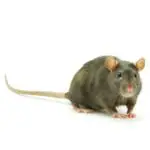How Can Environmental Health Help With Rats and Mice?
If you have rats or mice in your home, you should contact your local environmental health department as soon as possible. A local environmental health officer will be able to assess the extent of the infestation and offer advice on how to get rid of it. Rats and mice can be dangerous as they can spread diseases to humans. They can be found in lofts, wall cavities, sheds and compost heaps.
Rats prefer to live in areas where people live, and they’ll adapt quickly to a new neighborhood. They’ll also feed off of garbage, so you’ll want to make sure to keep your trash in rat-proof containers, and make sure you have enough trash containers. You should also cut back any weeds or shrubs in your yard, as these can attract rats. In addition, check for cracks in your home’s foundation and seal or fill them.
Rats can cause allergies in people who handle the animals. Environmental health professionals can help protect workers and prevent workers from developing these problems by reducing exposure to rodent allergens. In addition, environmental health professionals can help assess whether workers have become sensitive to the allergens in rats and mice. If they do, they can help them wear masks and filters, or reassign them to less exposed areas.
Rats can also cause damage to plants and other animals. To control these pests, you can use poisons, but be aware of the risk of secondary poisoning. Using poisons can kill both rats and birds, so make sure you read the instructions and don’t leave the baits lying around for too long. Also, make sure that the baits are placed in areas where children and pets cannot access them. You should check the baits frequently, especially if you have a large infestation. Rats can eat up an entire box of bait in a night!








